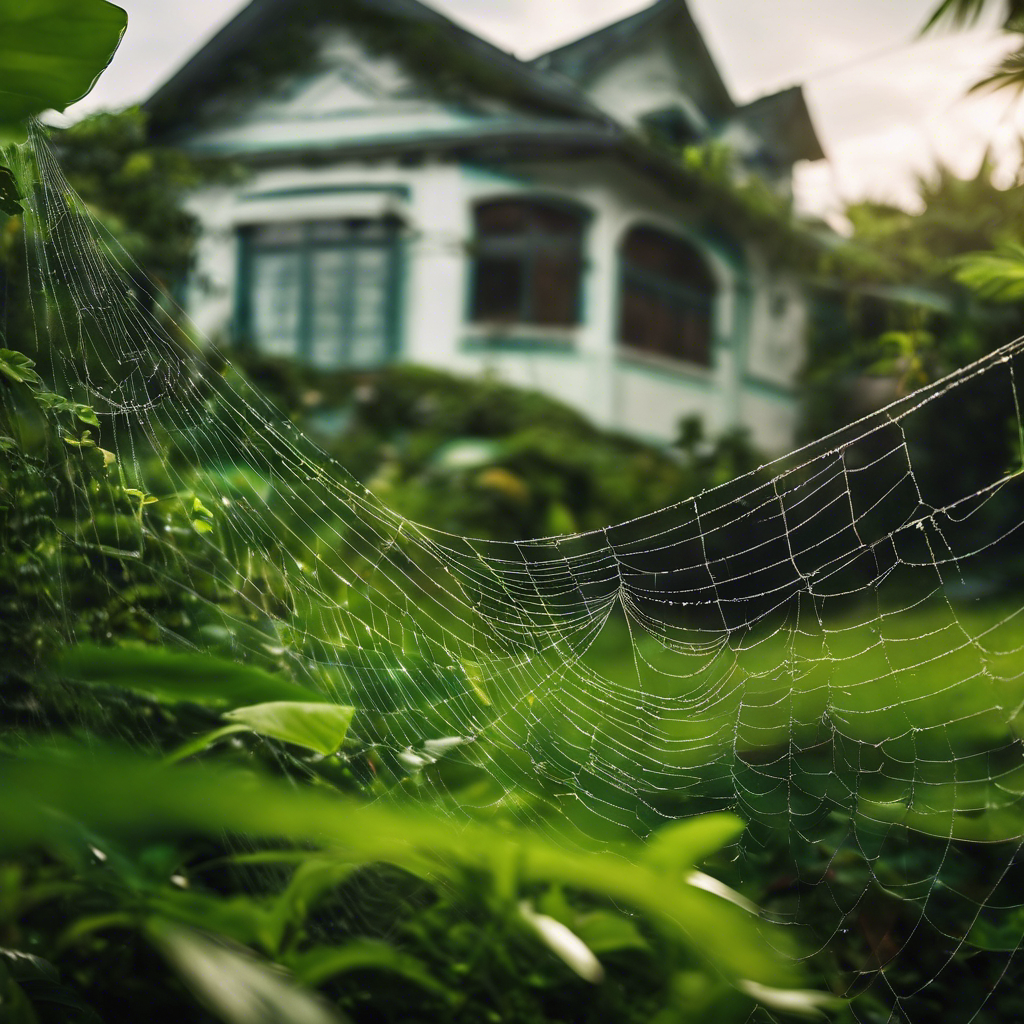Isn’t it a coincidence that the moment you start noticing spiders in your Tulsa home is when you’re least prepared to deal with them? You’ve stumbled into an area that requires a nuanced understanding, balancing between effective spider control and ensuring your home remains a safe haven.
From sealing entry points to avoiding common mistakes like overusing chemical repellents, there’s a lot you need to know. But, how do you differentiate between beneficial practices and potentially harmful ones?
Stick around, and let’s navigate the intricate world of spider control together, ensuring your efforts are both safe and successful.
Key Takeaways
- Utilize natural repellents like peppermint oil and vinegar to deter spiders without harsh chemicals.
- Seal home entry points with caulking and weather stripping to prevent spider access.
- Regularly clean and declutter to remove spider food sources and hiding spots.
- Consider professional pest control for targeted chemical treatments when necessary.
Identifying Common Spiders
To effectively manage spider populations in your Tulsa home, it’s important to first identify the common species, such as the House Spider, Wolf Spider, Brown Recluse, and Black Widow.
Understanding spider identification, including size, color, and distinctive markings, is essential. The Brown Recluse, identified by its violin-shaped mark, and the Black Widow, known for its red hourglass shape, are venomous spiders that pose risks.
In contrast, the House and Wolf spiders, while intimidating in appearance, are generally harmless to humans. Differentiating between these common spiders in Tulsa enables you to assess the level of threat accurately.
This foundational knowledge ensures you’re informed and prepared to take the next steps in maintaining a safe and comfortable home environment.
Natural Prevention Strategies
Adopting natural prevention strategies can greatly reduce spider populations in your Tulsa home, ensuring a safer and more comfortable living environment. By integrating plant-based sachets filled with essential oils such as tea tree oil, you’re not just repelling spiders; you’re doing it in an eco-friendly way that promotes a sense of well-being.
Peppermint oil, known for its potent menthol aroma, serves as an effective deterrent against these pests. Similarly, a simple solution of white vinegar and water, sprayed in a 50/50 ratio, acts as a cost-effective and potent repellent.
These strategies not only control the spider infestation but also forge a bond with nature by using ingredients that safeguard your home without relying on harsh chemicals.
Home Sealing Techniques
After exploring natural prevention strategies, it’s crucial that Tulsa homeowners also focus on sealing their homes to effectively keep spiders at bay. By diligently sealing cracks, gaps, and openings around windows, doors, and foundations, you’re creating a formidable barrier against spiders.
Utilize weather stripping and door sweeps to guarantee a tight seal, preventing these pesky intruders from entering your living spaces. Caulk around plumbing fixtures, electrical outlets, and cables to close off potential spider entry points.
Additionally, installing screens on vents, chimneys, and windows not only blocks spider access but also maintains essential ventilation. Regularly inspect and repair any damaged screens, doors, and windows to uphold this barrier.
Embrace these home sealing techniques to fortify your home against unwanted spider guests.
Chemical Control Measures
When considering spider control in Tulsa, incorporating chemical control measures into your strategy can greatly enhance your efforts to maintain a spider-free home. Utilizing insecticides specifically formulated for spider elimination is a critical component. Always adhere to manufacturer instructions and safety precautions to protect your family and pets.
For those stubborn spider infestations, professional pest control companies offer targeted chemical treatments, ensuring effective and safe eradication. Combining chemical control with preventive methods paves the way for long-term success.
Don’t go it alone; consulting with a pest control expert can help you identify the most efficient and secure chemical control options, tailored to your home’s needs. Remember, a strategic approach to chemical control is key to keeping those unwelcome arachnids at bay.
Monitoring and Maintenance
While implementing chemical control measures is a significant step towards a spider-free home, it’s equally important to regularly inspect and maintain your property to prevent future infestations.
Monitoring for signs of spider infestations, like webs and egg sacs, is key. By decluttering and sealing cracks, you’ll reduce hiding spots and discourage unwelcome guests. A consistent cleaning routine helps eliminate the insects that spiders feed on, cutting off their food supply.
Don’t forget to use a flashlight and mirror to check those hard-to-reach areas. Setting up sticky traps or glue boards can be a game-changer for identification and control, allowing you to better understand and tackle the problem.
Frequently Asked Questions
What Keeps Spiders Away Permanently?
To keep spiders away permanently, use natural repellents like peppermint oil and vinegar solutions. Adding cedar mulch, citrus peels, or diatomaceous earth around your home deters them. Don’t forget essential oils and sticky traps!
When Should I Spray for Spiders Around My House?
To snag spiders before they settle, spray around your house in spring and fall, focusing on the perimeter. Choose safe sprays, don’t overdo it, and consider natural alternatives or professional services for a thorough defense.
What Do Spiders Hate the Most?
Spiders detest peppermint oil, citrus scents, and vinegar solutions the most. Surround your home with chestnut barriers, cedar mulch, and diatomaceous earth. Planting lavender and eucalyptus, alongside using ultrasonic repellents and essential oils, also helps.
How Do I Keep Brown Recluse Spiders Out of My House?
To keep brown recluse spiders out, seal cracks, reduce clutter, and use glue traps. Apply peppermint spray, maintain regular cleaning, monitor humidity, store boxes properly, install screens, and perform landscape maintenance. You’ll create a spider-free home.





